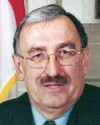Mr. Speaker, the hon. member is an experienced orator and debater. I take it he can confirm that the position of his entire party, the Conservative Party of Canada, is that a 50% plus one vote of those who vote will dismantle the country. If that is the case, how is it that we cannot change our own constitution on 50% plus one? Why is it that we need to have a much greater and clearer majority to change our constitution than Mr. Clark appears to want to have to permit the breakup of the country?
I ask the member, who is also a barrister and solicitor, if we are to take it that Mr. Clark disagrees with the Supreme Court of Canada that a clear majority is not required and that 50% plus one is all it takes to destroy Canada.



















